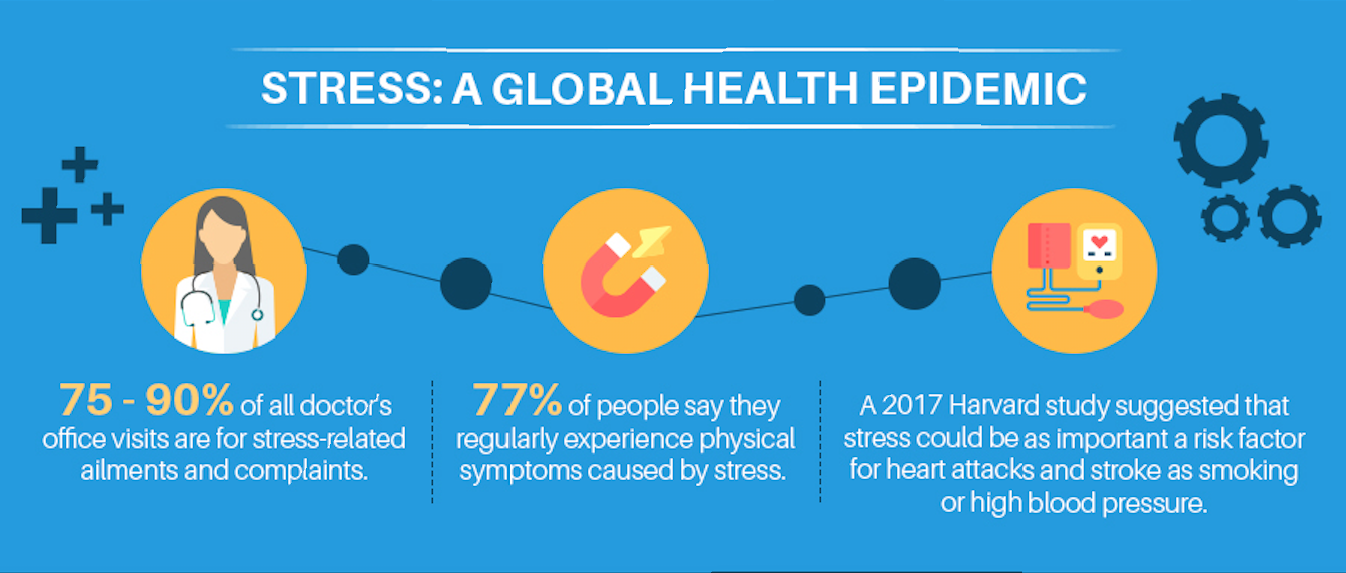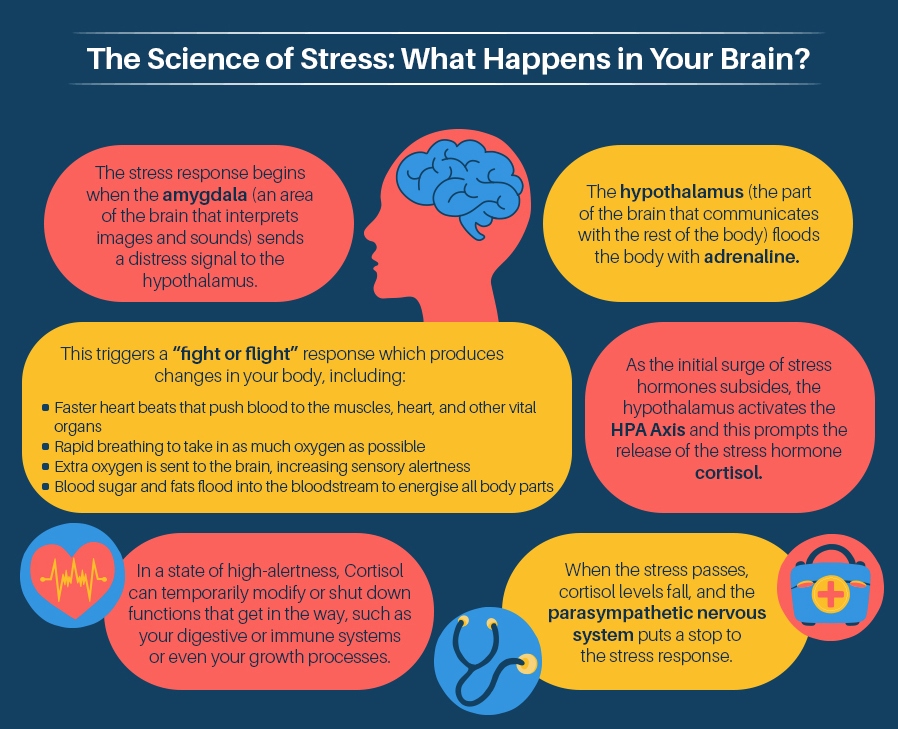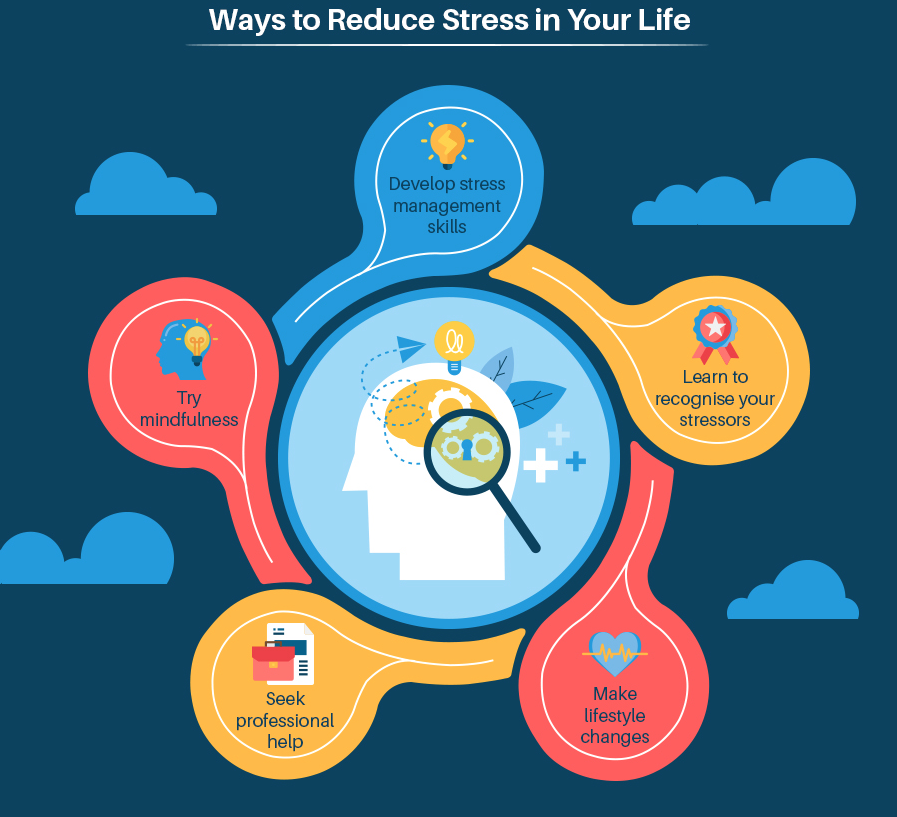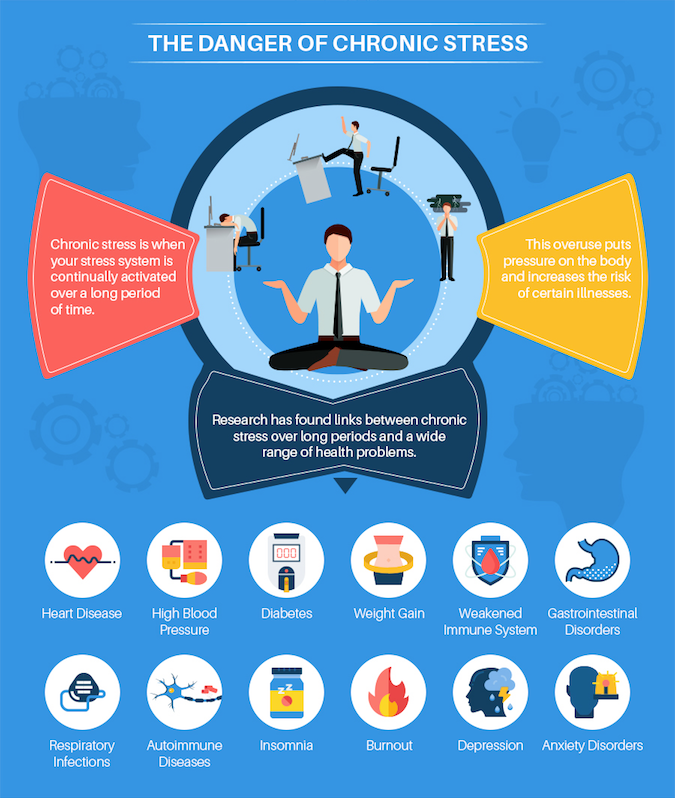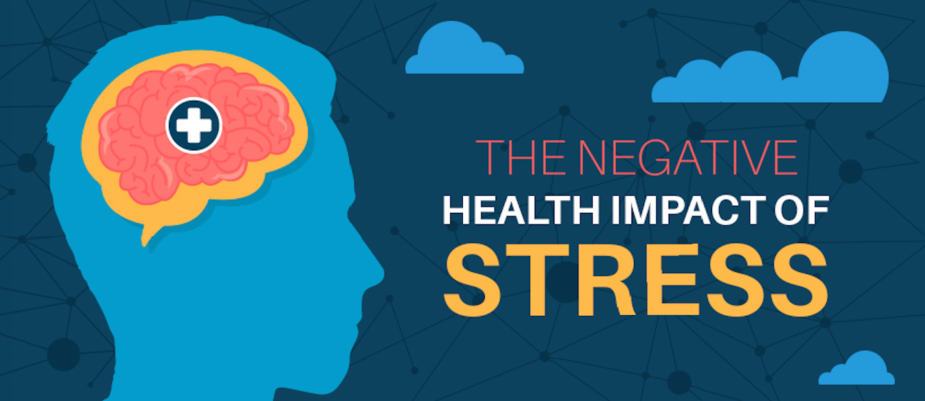
We have already dealt with the theme of stress in some articles (for example “Work stress: a 21st century health epidemic”); on this topic we now propose an infographic guide, created by a team at Study Medicine Europe, it includes some key stats about stress and offers an easy-to-understand summary of the many ways in which stress can harm our health, offering some proven methods to deal with anxiety and burnout in a positive way.
You can download the complete infographic guide with references here.
Did you know that between 75 and 90 % of all doctor’s office visits are for stress-related ailments and complaints? For this reason, it is important to understand the many different ways in which stress impacts our health and wellbeing at work, too.
What is Stress?
Stress is a feeling that’s experienced in response to pressures that come from a situation or life event. Experts have identified are two main types of stress:
Distress: This refers to a feeling of anxiety that is triggered by a negative experience. Eustress: Ultimately beneficial in nature, eustress gives you the energy and focus you need to succeed in a nerve-wracking situation.
How Stress Affects the Body?
Stress can affect how you feel physically. Stress symptoms can vary from person to person, however, some of the most common include headaches, fatigue, and stomach-aches. Research has also shown that stress can also weaken the immune system and heightens your risk of getting sick or catching an infection.
Feelings of stress are a normal part of everyday life and are generally not something to be overly concerned about. However, studies have found that repeated exposure to stress over a prolonged period can have a significantly negative affect on our physical wellbeing. Researchers have linked long-term chronic stress with a variety of serious health issues ranging from depression to gastrointestinal disorders.
How coping with Stress In A Healthy Way?
Developing positive ways of handling stress will help to boost your overall health and may also stop you from turning to destructive behaviours in high-pressure situations.
Some tried and tested ways of dealing with stress and anxiety include:
Breathing exercises;
Mindful meditation;
Maintaining a healthy lifestyle;
Spending time with loved ones;
Speaking to a trained professional;
Exercising;
Spending time with your pet.
WOW! Webmagazine thanks for collaboration
Aris Grigoriou, Student Recruitment Manager at Study Medicine Europe.

